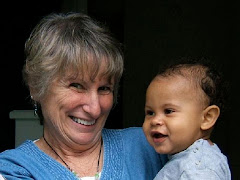Yesterday, I posted on my Challenging Children Facebook page, this question posed by a teacher: "what am I to do with a student who is not on task, causing other children to be off task, and taking my attention from those who want to learn?" here are 2 interventions that will, in most cases, elicit positive responses from the disruptive child as well as the other students in the class. #1. Develop the daily practice of greeting each child, as they enter your classroom, every day. This means that you, the teacher will be at the door, not as a hallway monitor, but as a "greeter". Personally address each child and make a mental note of the student's mood. #2. Pay particular attention to that child or children who seem a bit off that day. When this student or students appear off task, wander over to his desk during your lecture or during a seat assignment and gently touch the student's shoulder (unless of course you know that this is a student who will react negatively to this gesture). If you are uncomfortable touching a student, lean down and give a quiet, encouraging word. And #3: (Yes, I know I was only giving two interventions, but this one is an expansion of #2) Use #2 for amy child who appears off task or unfocused, even if he appeared just fine when you greeted her at the beginning of the class.
Sunday, September 23, 2012
Sunday, September 2, 2012
YOU ARE NOT THE BOSS OF ME!!!!!
"You can't tell me what to do; you are not the boss of me!" "No, I don't want to do______, I'm not going to do it and you stop talking!" These words come from a 4 year old...and with the words come the aggressive behaviors of kicking, spitting, and hitting. What does this behavior mean? I keep telling folks to look beneath the behaviors...this child has had to develop survival skills in the face of trauma....and in this survival mode he will fight whatever and whomever is in his way. He has got to have control, he has got to be in charge. And until he is able to feel a sense of true safety, he will be trying to control in the fight mode. Should he be punished for his aggressive behaviors? No, though these behaviors do need to be addressed. They do not need to be punished. Match is feeling, tell him you know he wants to have____, that he wants to go and do_____. And he will be able to have____later, or he can do____later. You know he wants it, you understand that he feels like he will never get it or never be able to do it, but he will. Not now because_____(make it a short explanation), but later. And for now he is safe, you are safe and he is okay. You don't want him to hit you, it does hurt you when he hits. But nothing is going to happen to him...he is okay, he is safe. Match his tone if you can without the anger behind it...he may need to know that you hear him...tell him you hear how very upset he is. Hold his hands when he tries to punch you, let him know it is not okay to spit...you aren't angry with him, but you don't want to be punched and you don't want to be spit at.
Subscribe to:
Posts (Atom)


